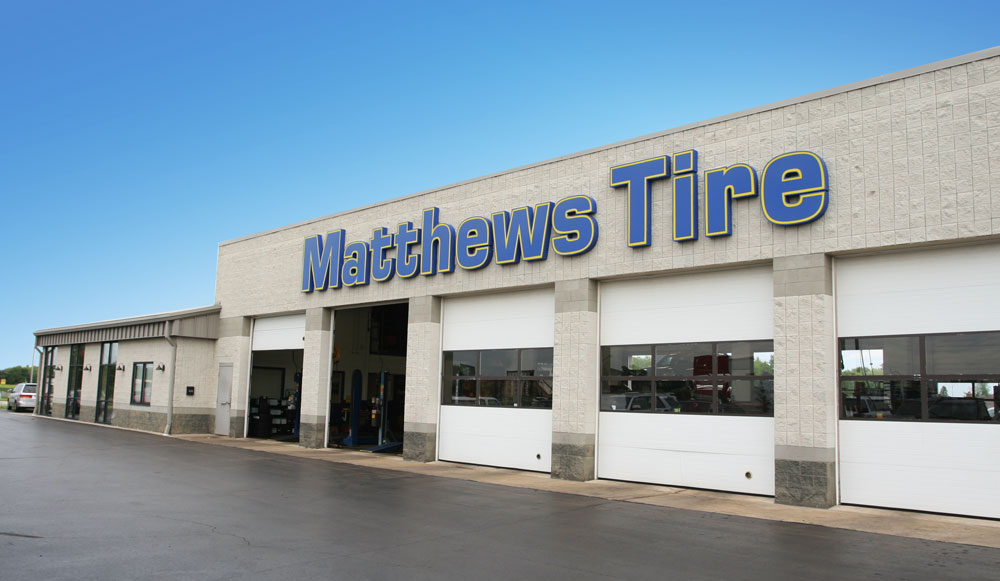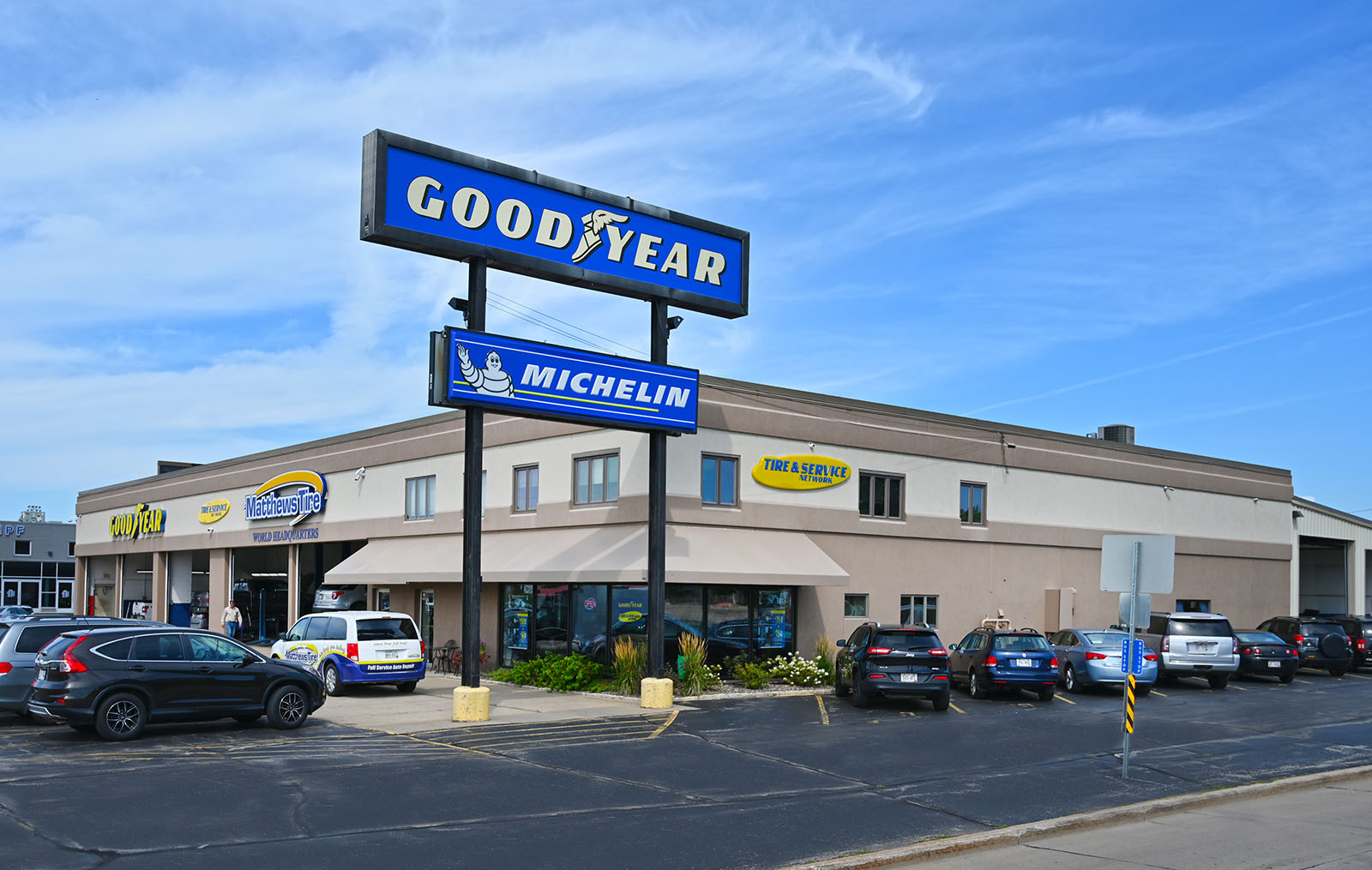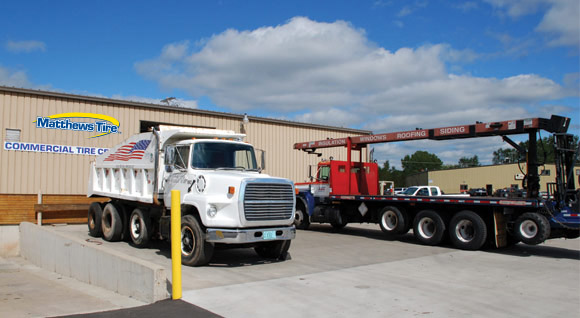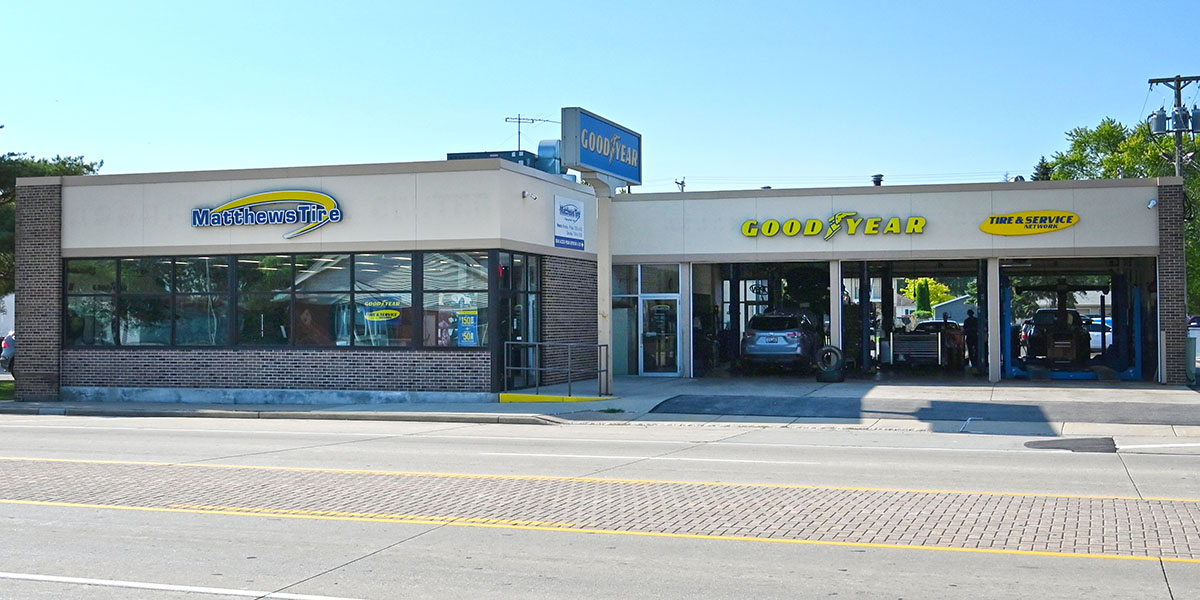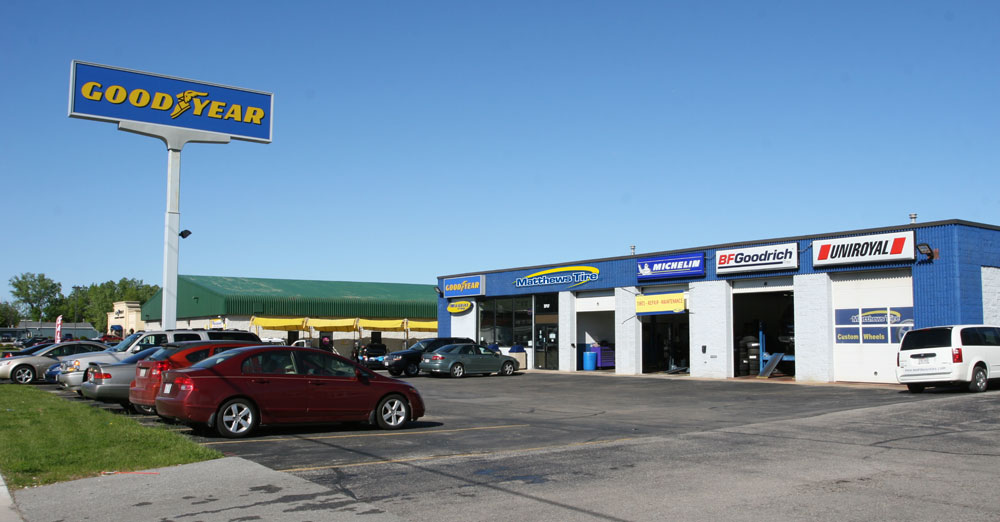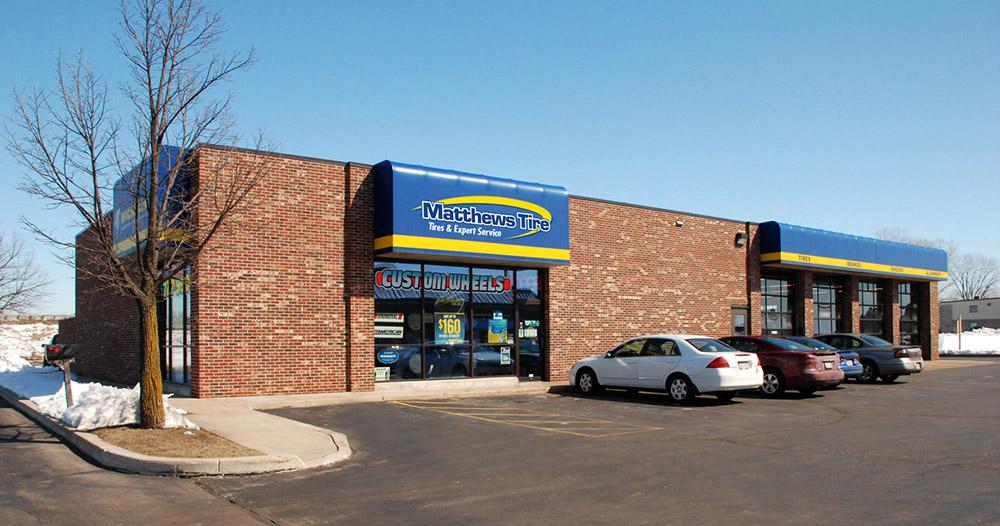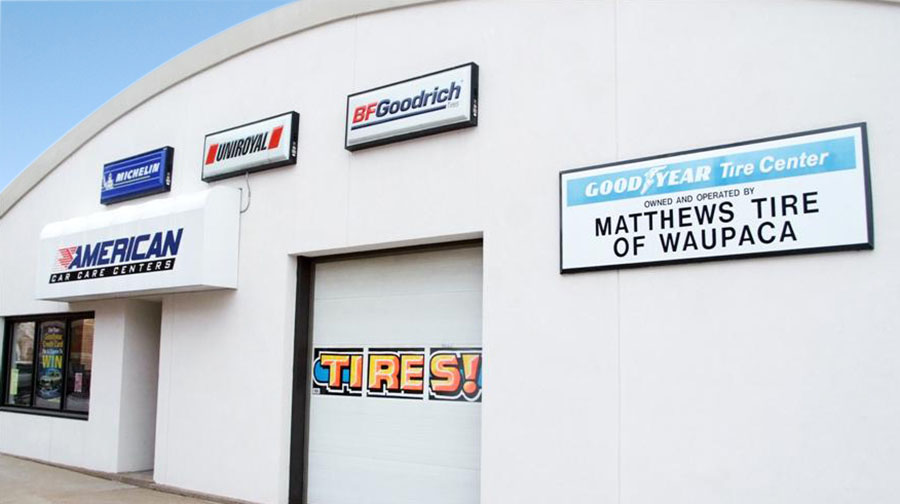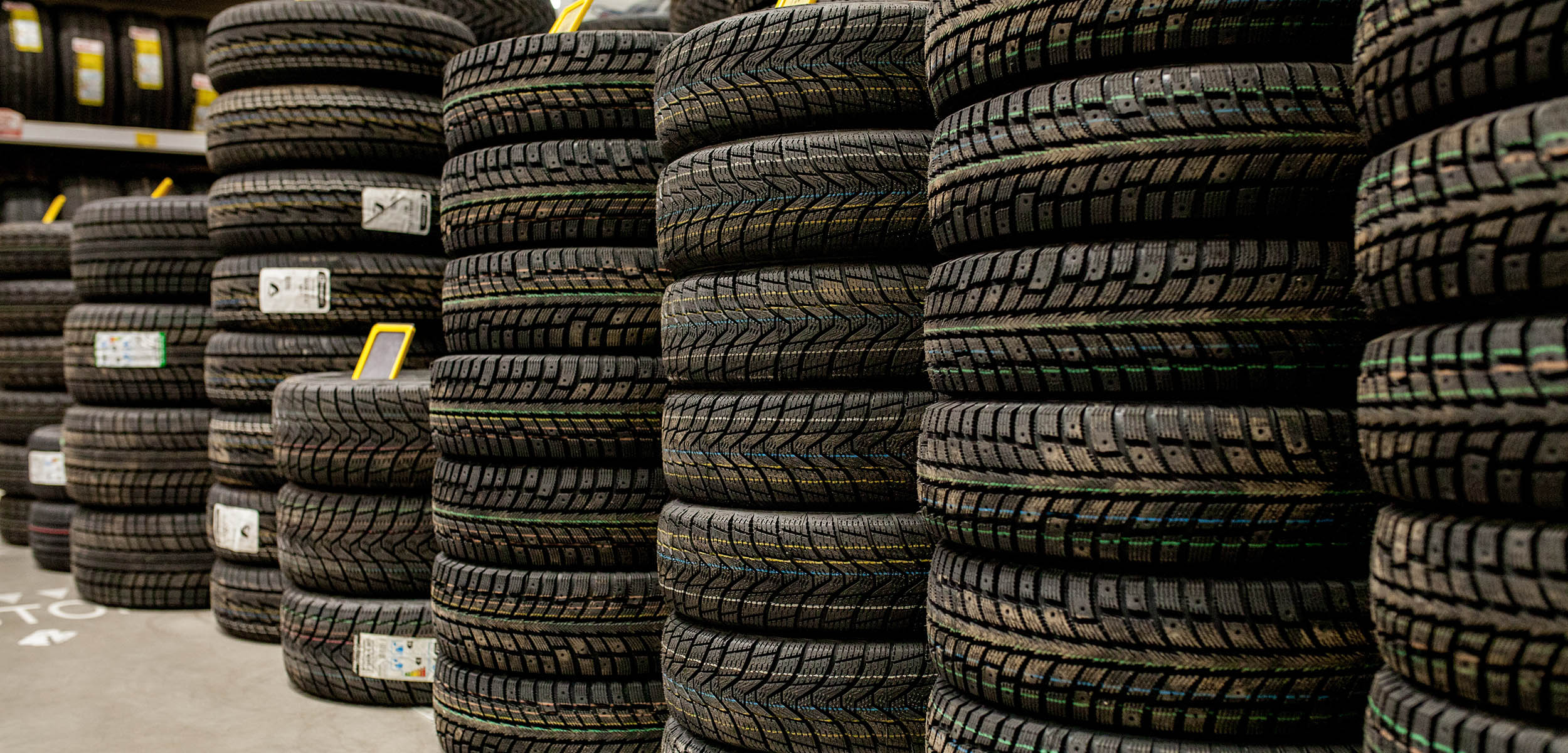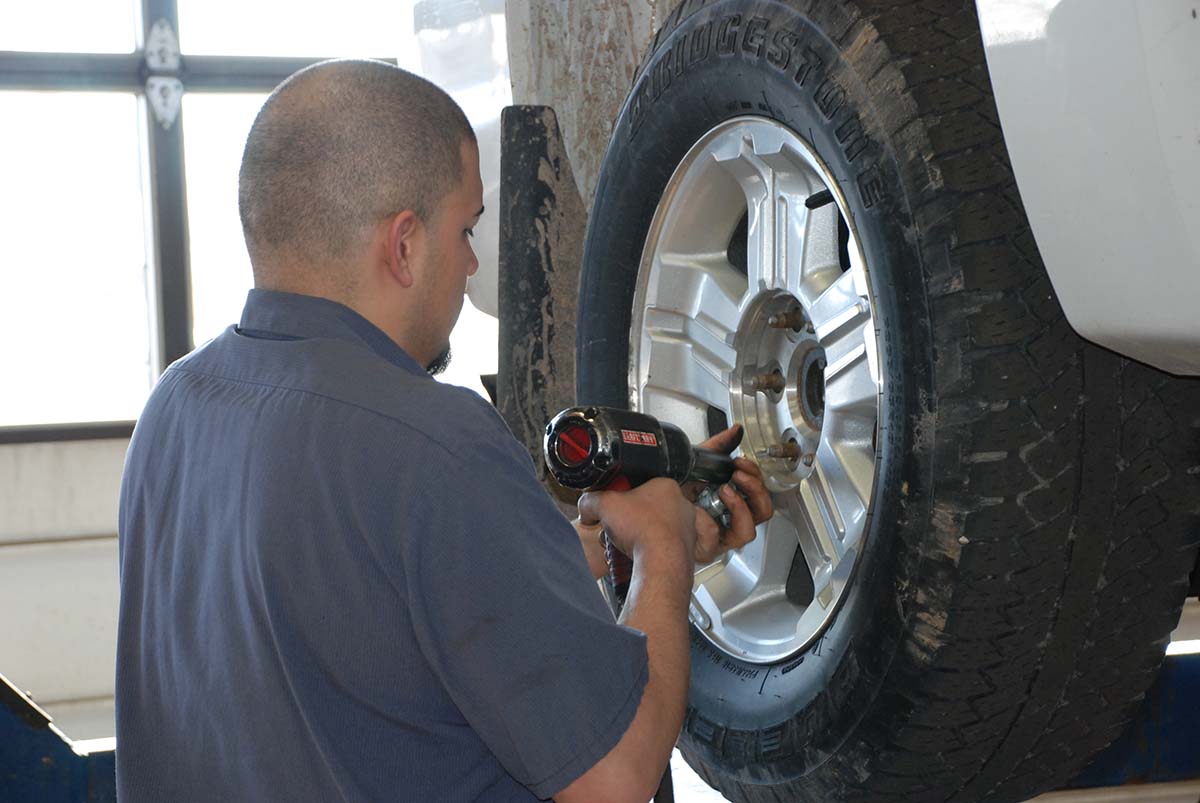When we buy a new or used vehicle, we may wonder if the tires that it came with are optimal. In this blog post, Matthews Tire Appleton West Manager Dave Flunker shares his thoughts on factory tires and how he helps vehicle owners choose the best options for tires going forward.
Factory Tires vs. Aftermarket Tires
Factory tires are “designed to meet the specifications that the automobile manufacturer wants,” Dave says. “Sometimes people will assume the tires aren’t good quality since they came with the car, but that’s not always the case.”
Generally, those factory tires — also called original equipment tires — are made by one of the major suppliers of tires. They may last as long as 40,000 or 50,000 miles, but usually less for a high-performance car, Dave says.
For aftermarket tires—those that a vehicle owner will switch to when it’s time to replace the originals—Dave recommends brand-name companies that offer options such as high-mileage and all-weather tires. What you might need depends on how and where you use your vehicle.
How You Can Tell What Kind of Tires Are Optimal for Your Vehicle
That’s where the experienced professionals at Matthews Tire come in. They’ve seen how tires perform on vehicles with various types of use, and they can recognize when a tire isn’t performing well.
“I might know that on your pickup truck, these two brands of tires work out well, and another may be a poor performer,” Dave says. “The same goes for other vehicles.”
Typically speaking, the major tire manufacturers like Michelin, Goodyear, Bridgestone or Firestone, are going to be the most dependable tires with a better ride and better traction, he says.
How Colder Climates May Change Which Tires You Need
Tires come in all-season, all-weather or winter versions. The introduction of all-weather tires eliminated the need to use a winter tire or chains when driving in hazardous snow conditions.
These tires have a ‘three-peak mountain snow’ rating, shown by a symbol on the tire depicting a mountain with three peaks and a snowflake in the middle.
“For us here in Wisconsin, you can use those tires all year round,” Dave says. “It’s going to give you the best winter traction you can get without going to a winter tire, and it eliminates the need for a winter-summer tire changeover.”
All-weather tires won’t last as long as high-milage tires, but are typically good for about 60,000 miles, Dave says. “Because they are a better traction tire with a better rubber compound, it does cut down on what you get for the number of miles.”
How Technicians Can Help You Choose
Tires need replacing when their treadwear indicators — markings on the edge of the tire — reach 2/32-inches, but you should start planning for new tires before they get that worn.
Matthews Tire technicians will take a look at what you have and ask questions to help determine which tires will best serve your vehicle.
“From the experience side, we can tell when a vehicle itself is hard on tires,” Dave says. “The questions we ask can help us point you in the right direction and help you decide if you need a high-mileage tire, or one that provides more traction in bad weather.”
Other Things to Keep in Mind
If you’re thinking of not replacing all four tires at once, it’s recommended that you at least replace two to keep the tread depth the same on each side. It’s best not to mix brands, even if they’re the same size tire, because they still might vary enough to make a difference with alignment.
For all-wheel drive vehicles, which are highly synchronized, it’s recommended that vehicle owners keep the tread depth of the tires similar on all four tires.
Additionally, “the most important thing with tires is air pressure,” Dave says. Vehicle owners can check the sticker on the driver’s side door to know the optimal air pressure for the tires on their vehicle. “Air pressure is key to fuel economy, and it’s critical to making sure your tires last as long as they can.”
Conclusion
If you wonder whether your tires need replacing or if it’s time to consider a different type of tire for your vehicle, bring it to Matthews Tire.
“We’ve seen how certain tires perform on different types of vehicles, with different types of use,” Dave says. “We can help walk you through the best options for your vehicle, which will help ensure the best performance and safety for your vehicle in the long run.”
